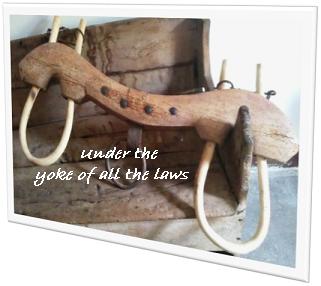The Christian: A Disciple Fourth in Series: What Is a Christian?
The Christian: A Disciple Fourth in Series: What Is a Christian?
Read Matthew 28:18-20, Matthew 11:25-30.
I thought just for a moment there when the organizer said that our theme is What is a Christian? that he was experiencing the same phenomenon that I am experiencing, that I am finding the word "is" increasingly difficult to pronounce. When we started this series, we emphasized that the emphasis in this series is on the word "is." We are not thinking so much about what a Christian does, but what a Christian is. And when you think about it, two things are actually fairly obvious. One is that there seem to be almost as many different ways to pronounce those two letters, "is," as there are people, and you can pronounce that word in quite different ways in different sentences. And the more you think about the word "is" (at least this is what I am finding), the more difficult I am finding it to remember how it was I used to say it. The other thing that is very striking is that the word "is" – that is to say, the word that opens up for you the nature of something, the being of something – the word "is" is actually one of the most discussed words in all of Western philosophy.
I remember as I was a mental philosophy student, I don’t know how many lectures I endured on the question “What do we mean when we say something is good?” (Transcription of audio file from 04:31 to 04:47 omitted.) What do we mean when we say something is good? You can think about that for the next several months and you won’t be able to write your answer on a postcard. Your instinct is probably to say, “Well, it is good! Don’t back me into the wall. Why, everybody knows what good is!," but when you read the philosophers you actually get the impression nobody knows what good is. When I say "good," what I mean is what I want the word "good" to mean. And there have been philosophers who have taken the view that all you’re saying when you say, “This is good” – like “The salad was good”; somebody said to me, “The salad is good” and I suspect that part of what they meant was, “I liked it.” And actually, that is the way it is most frequently employed in the English language. And you kind of feel that is not really what "good" should mean. There should be something objective.

So this whole question has just fascinated people down through the centuries. And the less people have been anchored in God and His revelation, the more futile have been their attempts to define what anything is. They can describe it, but to define it is beyond their capacity. So there is something very slippery, isn’t there, about this word "is." That is one of the reasons why when the New Testament answers the question “What is a Christian?” it actually takes us for a walk round a real Christian to describe him or her from a whole series of different vantage points. And that is one of the things that we have been seeing. There is not a one word answer to the question “What is a Christian?” A Christian, after all, is a Christian! A Christian is a believer. A Christian is a saint.
And today, a Christian is a disciple. Now, if I remember my high school Latin properly, disciple comes from the Latin word "discipulus," which means usually something like a pupil (not a student, but a pupil; there is a pretty significant difference there) or (and I think this captures it best) an apprentice. Actually, that is not an uncommon use of the term "disciple" even in our own language. Since golf is the sport about which I know best and don’t play quite worst, you will find that a different professional golfer is described as a disciple of somebody or another. That is to say, he seeks to or she seeks to embrace an entire methodology, a whole perspective, and to build that into their lives. So when the Bible speaks about people who are disciples (and it is not a particularly Christian word, incidentally; the Bible speaks about disciples of John the Baptist, disciples of the Pharisees. The word itself is not a Christian word), when the Bible uses it, it means not only somebody who learns information from another, but somebody who embraces the whole lifestyle that is taught by another.
We have moved away from that very much in most of our educational environments, but that is the old-fashioned manner of education. Education did not just mean, as one of my professors used to say, the passing of information from one piece of paper to someone else’s piece of paper without the information going through the brains of either the speaker or the recipient. That is not what education essentially was. Education was a whole life reality in which if you were a parent you entrusted your child not only to somebody who was able to teach them information, but somebody that you wanted your child to model their whole way of thinking and their pattern of living upon that person.

That is what it means to be a disciple of the Lord Jesus Christ. Christ not only teaches us the truth about Himself, but Christ becomes the one we embrace, so that our whole lives actually have as their goal, their purpose, their point, that we become more and more like the Lord Jesus. Indeed, you can summarize much of the New Testament’s teaching by saying: This is what God wants to do in your life. He wants to make you more like Jesus. He is not satisfied that you know more about the Bible than somebody else does. He is not satisfied that you are smarter than somebody else, or even that you have more wisdom than somebody else, but that you have become more and more and more like the Lord Jesus, so that there are things about you that remind others of the Lord Jesus and point them to Him. That is what it means to be a disciple!
I have chosen these two passages from Matthew’s Gospel because, of the four Gospels, Matthew’s Gospel is the one that looks most of all as though it has been specifically written as a kind of discipleship manual for Christians. That is probably the reason why, as Matthew tells the story from Jesus’ birth right through to the passage that we have read here, he stops on about five different occasions and he says to us, “Let’s have a little seminar with Jesus.” And so there are five big blocks of teaching in Matthew’s Gospel. The most famous, of course, is the Sermon on the Mount. The Sermon on the Mount is the first of five points at which he stops and says, “Ok, let’s pause here and let’s have this seminar with the Lord Jesus, in which he teaches us the truth and he explains to us the model for our lives.”
And that is why Matthew’s Gospel ends the way it does, with Jesus saying to the apostles whom he has disciple, “Now I want you to go into the whole world and make disciples of all the nations, and as you do that there are two things that you need to do and there is one thing I promise you.” The thing He promises them is that He will be with them all the way. And making disciples is not easy; that is to say, being involved in God’s work of transforming frail human clay like us into the likeness of Jesus Christ cannot possibly be an easy activity. So he promises them that He will be with them. The other things He says are, “Now, I want you to baptize,” because people need a visible assurance about what the gospel will provide for them, in giving them a new life, a new birth, in washing away their sins, in uniting them to a new family. “So go and baptize in the single name of the Father, the Son and the Holy Spirit. I want to adopt them out of the family of Adam and to bring them into the family of God, the family of Jesus Christ.” “And the other thing you are to do is” (now, here is the watchword for disciples; if I am a Christian and a disciple, this is a watchword over the whole of my life) “teach them to observe everything that I have commanded you.” Teach them to observe everything that I have commanded you. A disciple is somebody who is learning to observe absolutely everything that Jesus commanded. Now, I think that raises several questions.
First question is: “If I am a disciple, where on earth am I going to find this?” And the answer is: in the Bible. In somewhere just over 250 chapters, all of them (by book standards) relatively short. Within the space of a very manageable paperback, you and I can discover absolutely everything that Jesus has commanded his disciples to do. So actually, you know, when you become a Christian one of the very best things you can do is buy a Bible. And if you have been a Christian for a long time, one of the best things you can do is buy another Bible! (Transcription of audio file from 16:10 to 16:30 omitted.) And here is what you do: you read a chapter a day for eight or nine months, and you take out a yellow or a blue marker or a red pen and you underline in your New Testament absolutely everything that Jesus has taught us to do.

How do I know that’s where you find this? Because within the last 24 hours of Jesus’ life he sat down with the disciples and explained to them, “I don’t think it has dawned on you, but a chief reason that I have called you is that so when I go, my Holy Spirit will bring back to your memory everything that I have said, and my Holy Spirit will lead you into the truth of what I have said and how to apply that truth, and my Holy Spirit will show you things that are to come.” Now that is three different ways of describing the New Testament. Everything Jesus has taught us is in the Gospels, the way in which the apostles were led into all the truth is found in the Acts of the Apostles and the Letters, and there are places both in the Letters and in the book of Revelation where Jesus showed the apostles the things that are still to come. So one of Jesus’ last things he taught his disciples before his crucifixion was, “I want you men to have a very clear understanding of what it is I want you to do.”
That is the reason why we have got the New Testament. Not because they thought, “It would be great for us to write a book.” There are probably only two of the authors in the New Testament that would ever have dreamt of writing a book, unless Jesus had commanded them to teach the Church everything that He had taught them. So it is actually very simple, isn’t it? You know, I am getting old, and I am just constantly amazed how Christians and entire churches and entire denominations will try to go about living the Christian life and building Christian churches and ignore everything that Jesus said. As though we invented it for ourselves, when here he is giving us a clue about what we need to learn to do as Christians. We need to know and follow through on absolutely everything that Jesus taught us to do. It is not rocket science. If you are dyslexic, you can get it on a CD these days; you can probably listen to it on your computer. There is some inexpensive way of every single one of us in Christian churches doing Jesus’ basic exercise.
Many of us here are parents or teachers. Maybe you are blessed with children to whom you never had to say this: “Will you not listen to what I am saying!” I’m stunned and ashamed to think that I actually should live in this way, where if I looked Jesus in the eye I have got to say, “I did not really think it was that important. I don’t think it was that important that you died and rose again and gave the apostles this charge that cost most of them their lives. I thought I could do it my own way!” But there is no such thing as Frank Sinatra Christianity. And he would say, “Will you not just do it my way?” There is a confession that just overwhelms me: I don’t know if there is a single Christian church in the Western world where the leaders of that church have sat down at the beginning of a year and said, “Let’s all of us read through the New Testament, and let’s just do and find ways of doing what Jesus has told us to do.” It is not rocket science. I mean, our children could do that. What a great exercise for your (whatever it is) nine-year-old daughter or granddaughter. What a tremendous thing for those of you who are grandparents to do with them. “Let’s read through the New Testament together and find out what the Lord Jesus wants us to do.”
But when you are finished that, that is when it does become challenging. That’s the easy bit for willing disciples. The tough thing is when you actually find out what Jesus wants you to do, when you hear some of the things he says about discipleship. That it means giving everything to Him. That it means you will be willing, as I sometimes say, to do anything, go anywhere, at any time and at any price because Jesus is your Lord and Master and you want to be His disciple. So actually, just a word of caution: this book could seriously depress you, because you are not able to do anything Jesus commanded you on your own. That is why this second passage is so important. At the end of the Gospel, Jesus is saying to the disciples, “Now, I want you to go and make other disciples.” And He understands if I read through my little New Testament and I mark all the things that He is calling me to do I will just be overwhelmed and say, “This is utterly impossible. Nobody can live this way.” And what Jesus is saying right there in the middle of the Gospel is, “If that is your response, then you have missed the key element in being a disciple. Being a disciple is not just learning the information and then trying to do it. Being a disciple is first and foremost about a new relationship into which you enter with me as your Lord and Master.”
And you notice that in these words that (I think in the Anglican tradition) have always been called the "comfortable words." Not meaning, incidentally, that they make you feel comfortable, but they give you strength when you are weak. Comfortable comes, as you all know, from the Latin words "cum forte" – with strength. What is it that is going to give me the power and the energy and even the desire to live this way? Well, says Jesus, here it is. He says, “Come to me, you who labour and are heavy laden, and I will give you rest. Take my yoke on you and learn” – learn; be my disciple – “learn from me, for I am gentle and lowly in heart, and you will find rest for your souls. For my yoke is easy and my burden is light.”
Now you see, if Jesus had said what he says in Matthew 28 in Matthew 11, I think there would have been many people who would have said, “Dear Jesus, I have been living under the yoke of all the laws of the Old Testament and all the applications of those laws that the scribes and the Pharisees have brought into place, and it is absolutely killing me. It is a burden on my back.” Remember (those of us who have been here for Dr. Thomas’ series on Pilgrim’s Progress), he is asked, “How did you get the burden on your back?” And he says, “By reading this book in my hand.” This book will kill you unless you understand that what Jesus is saying is: “The only way in which my commands will no longer be a yoke that oppresses you but a yoke that is easy and a burden that is light, is if you first of all come to me to find rest.”

Just think about that picture of a yoke, and think about being yoked to Jesus. Probably not many of us, unless we have travelled overseas to Third World countries, have ever seen animals yoked together. And how irritating and burdensome that yoke will be unless it has been specially fitted for the beast that has it over its shoulders. And Jesus is essentially saying here, “Look, I am under one part of the yoke. I am placing you under the other part of the yoke. Walk in companionship with me. Follow me, and you will find this yoke is actually easy, and what you thought was a burden is light.” Imagine an aeroplane speaking and saying, “I feel very heavy. I’m far too heavy to fly; let me get rid of the wings.” That is stupid, isn’t it? The wings add to the weight, but without them the bird, the plane, cannot fly! And Jesus is saying here, “I know it seems that what is being placed on you is a great weight, but bow your neck under the yoke and you will discover that it actually fits perfectly, and there is an ease in living under my commandments because you have given yourself away to me. And because you have given yourself away to me, the friction of your rebellious heart has been quieted and you found rest.”
You found rest. That is actually what the vast majority of our contemporaries need most of all. This is the most restless society there has ever been, I think, since the time of the Middle Ages and long before. Terrible restlessness. People can’t keep their minds still, and everything that oppresses us to say, “You can’t concentrate for more than three minutes, so we’re going to change the scene” just ministers to that! The restlessness that is created by our computers not working, our cell phones not working. Everything is against us! There is nothing in this world that can bring us rest in our contemporary society, except the Lord Jesus Christ. He promises to give those who come to Him humbly rest. The reason you and I should run to Him for this is not just because we need rest. But listen to this (this is the only way in which our Lord Jesus ever drew attention to what He was like. The Gospels describe what Jesus was like, but this is a unique place in which Jesus tells us what He is like): He says, “I am meek and lowly in heart, and that is why you will find in me rest for your souls. Because I am gentle and I am humble and I am full of grace, and you can trust me.”
I remember reading as a teenager (it is pure mythology, I am sure; although it would be lovely if it was true) that there was a sign over Joseph’s carpenter shop. (It is pure mythology, let me underline that) But the sign over Joseph’s carpenter shop in the mythology read, “Our yokes fit well.” Are you a restless individual? Where are you looking for rest? “My yoke is easy.” Oh, the burden. “No, no” He says. “The burden will be light, because I am bearing all the weight and I will be with you to the very end.”

That’s what it means to be his disciple, and day by day to inch forward in being more and more like the Master. It would surprise me actually, in a crowd like this if there wasn’t somebody who thought that being a Christian was trying to do what Jesus told us to do. I say that because some of us in this room did exactly that. We thought, “I want to be a Christian, so I will try to do what Jesus has told me to do.” You see, you can’t do what Jesus has told you to do without Jesus! That is why He tells us, “Now child, come.” How many people have we, as a collective group, taught children to sing, “If I come to Jesus, He will make me glad”? And you know, it is possible to do that and never to have come to Jesus for yourself. So that is the message. If you are going to be a disciple, the first thing is to come to the Master.

Add new comment